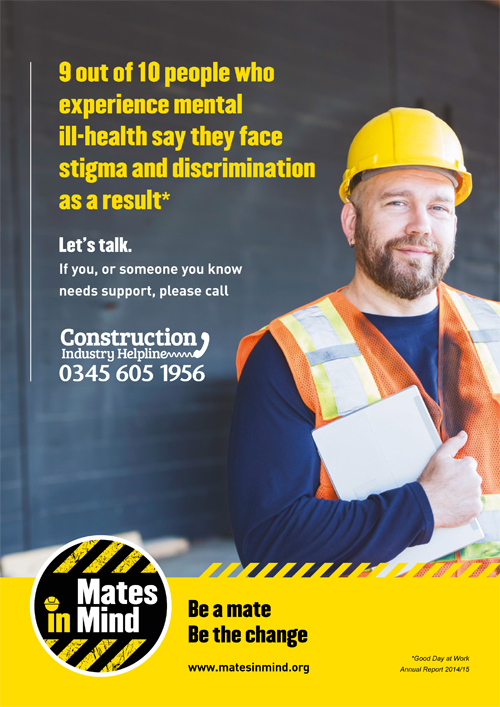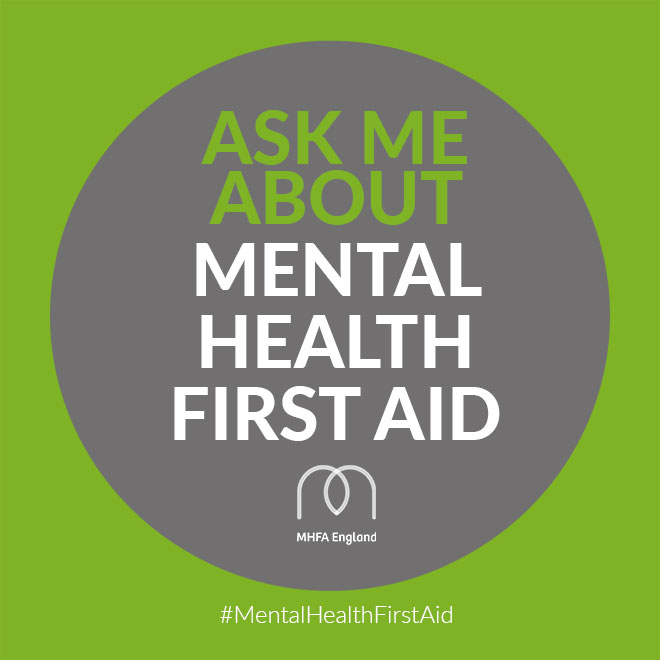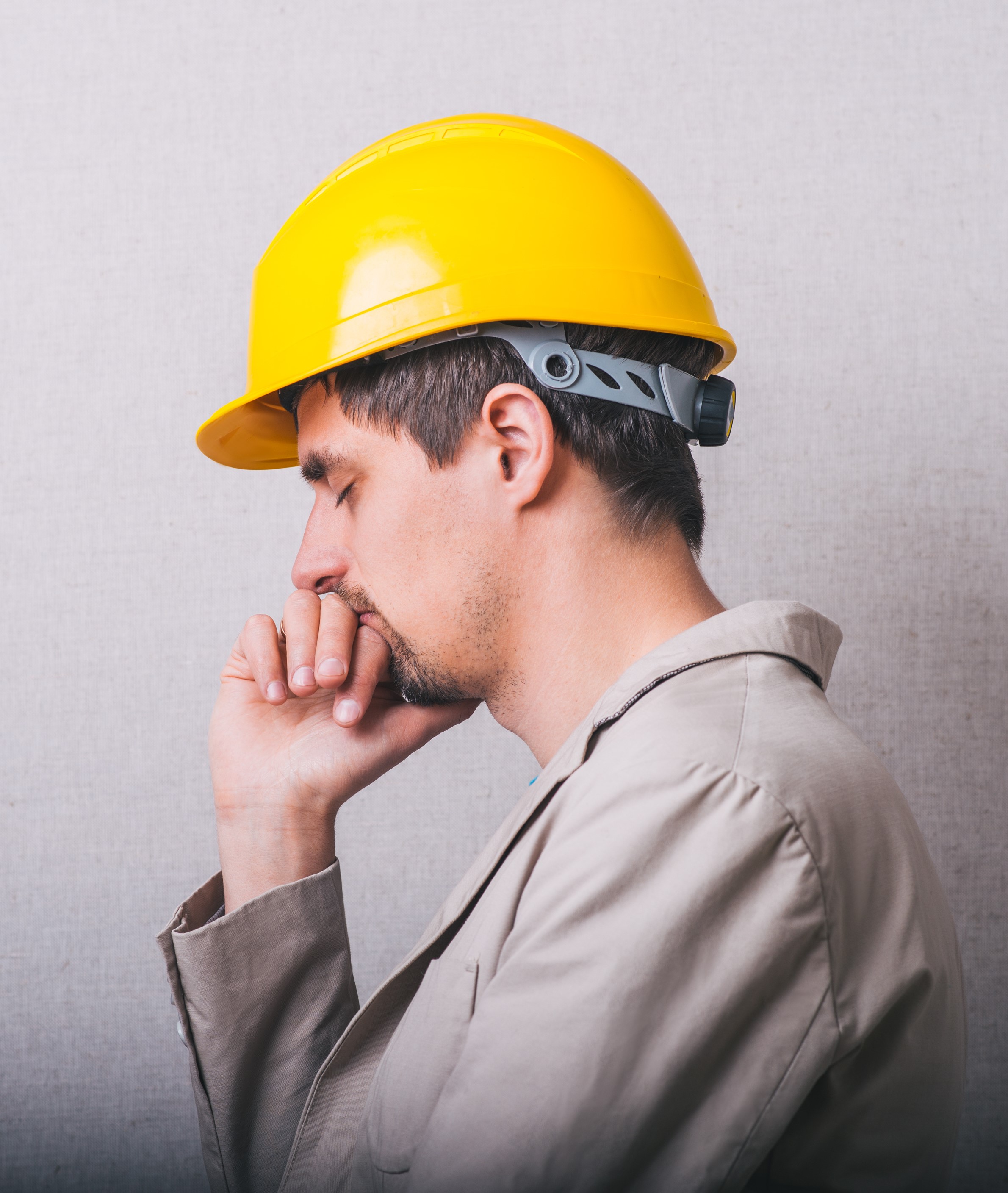Latest News
Men’s Mental Health and Construction
Posted on Friday, 29th November 2019

Today marks the end of Men’s Mental Health Month. Throughout November, people from all over the country have been helping to end the taboo around mental health. To support the campaign, this week’s blog looks at what mental health is, why men in construction are at risk of mental health problems, and what we can do to help those suffering.
What is Mental Health?
Just in the same way that we all have physical health, we all have mental health, and we need to look after it. The most common mental health issues are forms of anxiety and depression, with around 8% of people in the UK meeting the criteria for diagnosis.
Mental health is a broad term which encompasses our emotional and psychological well-being. This determines how well we can operate in our day-to-day lives, how we cope with our everyday challenges and how we relate to the world around us. Bad mental health can affect every aspect of your life. Your work, your relationships and your physical well-being can be put under immense strain if you’re suffering and not addressing your psychological issues.
Why is Mental Health such an issue for men?
Of course mental health is not just an issue for men, women are just as likely to experience mental health problems. However, the statistics identify that men struggle more at handling psychological problems when they arise:
- Around 75% of suicides in the UK are committed by men
- Suicide is the biggest killer of men under 45
- Death by suicide rose by 10.9% in 2018
There are many potential reasons for this gender split, it could be related to the societal pressures placed on men to be what is perceived as masculine. The phrase “man-up” is a common example of this attitude towards men’s mental health, as it suggests men shouldn’t discuss their emotions or reach out for help.
 Mental Health in Construction
Mental Health in Construction
Just as construction work takes its toll on your body, it can have major impacts on your mind as well:
- Male construction workers are 3 times more likely to commit suicide than the average man in the UK
- On average, 2 construction workers take their own lives every day
- Suicide is a bigger killer of construction workers than falls
- Depression and anxiety are now more common in the industry than musculoskeletal disorders such as muscle strains and Carpal Tunnel syndrome
The sector can be incredibly stressful for workers, with long-working hours, demanding schedules and an insecure job market. Individuals and organisations need to make sure they have the correct protocol and procedures in place to resolve and prevent mental health problems in the same way they would any physical injuries. Construction is a male-dominated industry, and this can lead to very masculine work environments where people feel uncomfortable discussing their emotions. The problems that men face in addressing mental health issues are heightened in such workplaces.
We at ESS are committed to improving mental health in construction. To show this, we have signed the Building Mental Health Charter, which makes a commitment to raise awareness and improve education around mental health. Their goal is to “educate everyone in our industry to recognise the signs and symptoms of stress, anxiety and depression and start the conversation to assist in their recovery.”
We also support the work of Mates in Mind, a charity set-up by the Health in Construction Leadership Group (HCLG) to provide information and promote mental wellbeing in construction workplaces. They reach out to organisations and individuals to provide help and advise the industry in tackling the stigma around mental health. Both services are free to access and sign-up to. We recommend all construction organisations and workers take the time to look at their websites and see the support they can offer.
Who can I talk to?
If you’re struggling with your mental health, talk to someone. Having a support network of friends and family can be helpful, but for some people talking to a trained professional may be a better option.
If you are mentally unwell, the best port of call is to speak to your GP. They will keep any information you share confidential and can recommend the best treatment for you. There are numerous NHS mental health treatments available, ranging from talking therapies, support groups or medication. Most of these require a GP referral to access.
If you need to speak to someone more urgently, Samaritans is available 24 hours a day. Samaritans is a mental health helpline where you can speak to someone about whatever is on your mind. It’s a free service made up of volunteers who are trained in non-judgemental listening. Another similar service is Mind, who as well as offering an over-the-phone service, campaign to raise awareness of mental health issues.
Whatever issues you are facing, don’t suffer in silence.
Mental Health Training with Essential Site Skills
We at ESS have a broad range of courses to ensure workplaces are doing all they can to help colleagues who are experiencing mental health problems;
The training you need will depend on the upon groups of people you work with. For example, those in the health or social care sector will need specialised training to work with certain at-risk groups or advanced mental health difficulties. To help work out which course is right for you, let's breakdown the different options we have available:

Mental Health First Aid
We are proud to showcase our new Mental Health First Aid course starting in January 2020. This training outlines how to spot the warning signs of mental health problems and approach the issue in a professional and compassionate manner. The 2 days course breaks down key skills including:
- Understanding of mental health and the factors that can affect wellbeing
- How to spot the triggers and signs of mental health issues
- Confidence to step in, reassure and support a person in distress
- Enhanced interpersonal skills such as non-judgemental listening
- Guiding people to the appropriate support networks and resources
Being awarded this qualification will allow you to serve as Mental Health First Aider within your company. This role will be vital within any organisation to help recognise the symptoms of mental health issues early and provide the best support for colleagues.
NCFE CACHE Mental Health Awareness
This qualification provides learners with the opportunity to develop an understanding of the basics of Mental Health Awareness. This includes:
- Awareness of the issues surrounding mental health difficulties
- Address the misconceptions frequently linked to mental health issues
- Develop learners' knowledge of the rights of those with mental health issues
This is a 1 day course which will award successful learners with a NCFE CACHE Level 1 Award in Mental Health Awareness. We also run a similar e-learning course in Mental Health Awareness for those who would prefer to learn online. This training covers many of the same areas and is CPD approved.
 NCFE CACHE Working with People with Mental Health Needs
NCFE CACHE Working with People with Mental Health Needs
This course is primarily aimed at people in the health and social care sector who require the knowledge of how to support those with mental health needs. The qualification sets out to educate the learner on:
- the role of mental health workers
- the process and approaches involved in the care
- supporting those who experience mental ill-health
Successful participants will be awarded with a Level 2 Certificate after completing 3 months of blended learning.
NCFE CACHE Awareness of Mental Health Problems
This Level 2 qualification is not tailored for a specific sector, but anyone who wants to learn about the different mental health problems and how they can cause ill-health. As with the previous course, this takes place over 3 months of blended learning.
NCFE CACHE Understanding Children and Young Peoples Mental Health
As the name would suggest, this course is aimed at people who work with children and young people to help identify and support those with mental health issues. It focuses on the specific issues that young people face in battling mental health issues. Again, this course is 3 months of blended learning.
Contacts:
If you are struggling and would like to speak to someone about your problems, here are some contact details which will be able to help you:
Samaritans - You can call them on 116 123, or if you would prefer to speak over email you can use jo@samaritans.org
Mind - 0300 123 3393
Construction Industry Helpline - 0345 605 1956
NHS – If it’s not emergency you can call 111 or email 111.nhs.uk, or contact your GP
Want to know more about our courses?
If you are looking for more information about mental health courses, a member of our training team will be happy to help you on 0115 8970 529. Alternatively, you can email us at info@essentialsiteskills.com.


